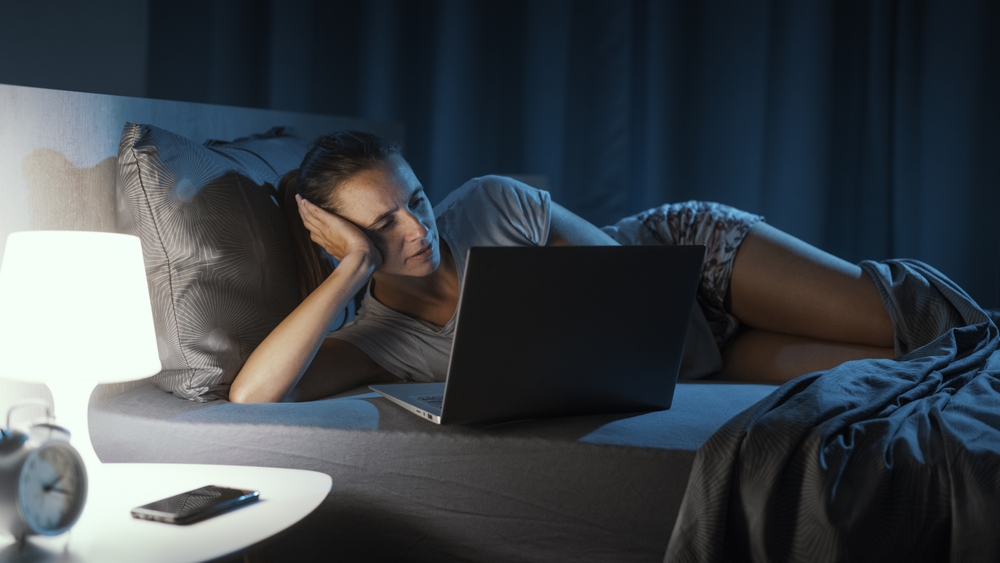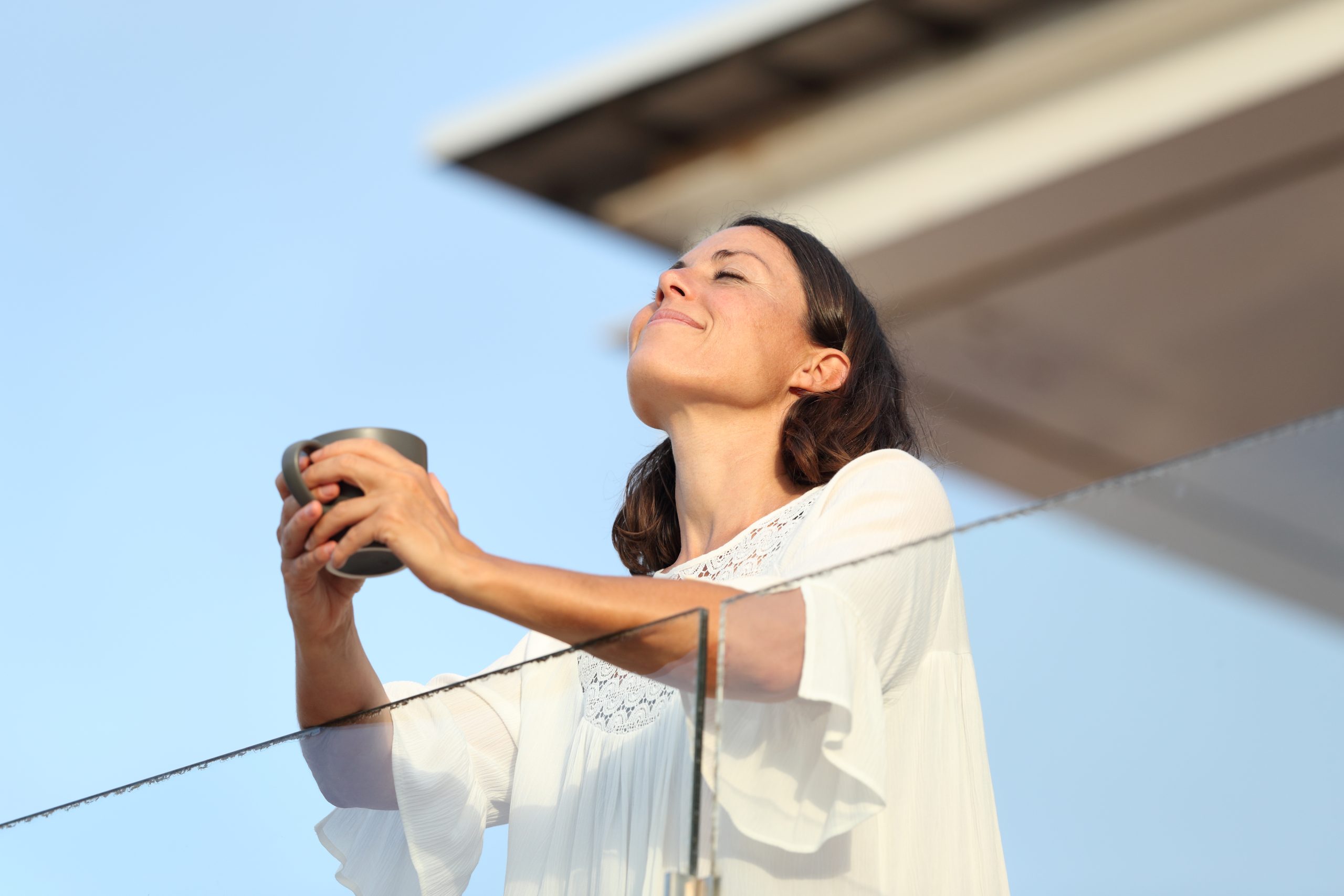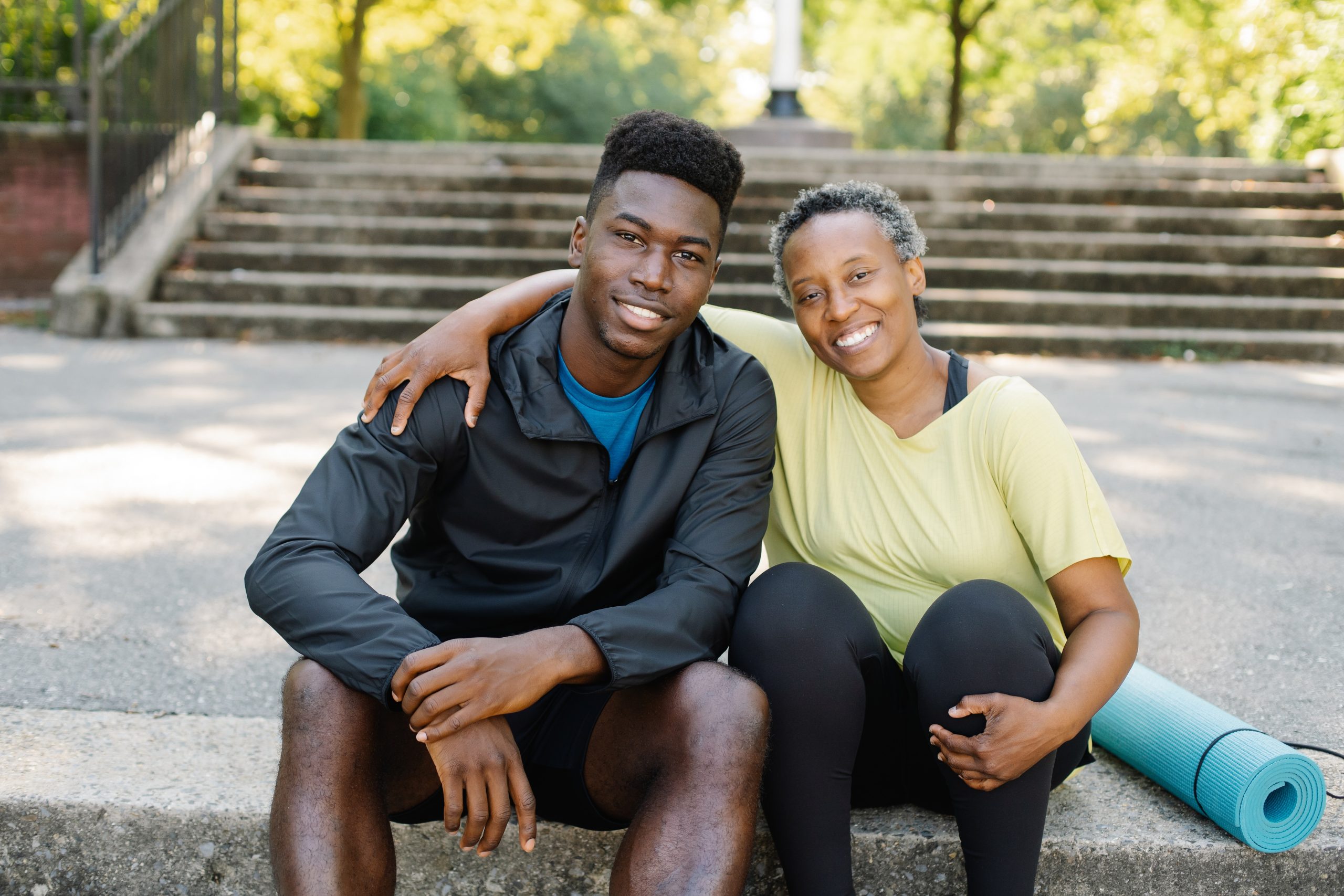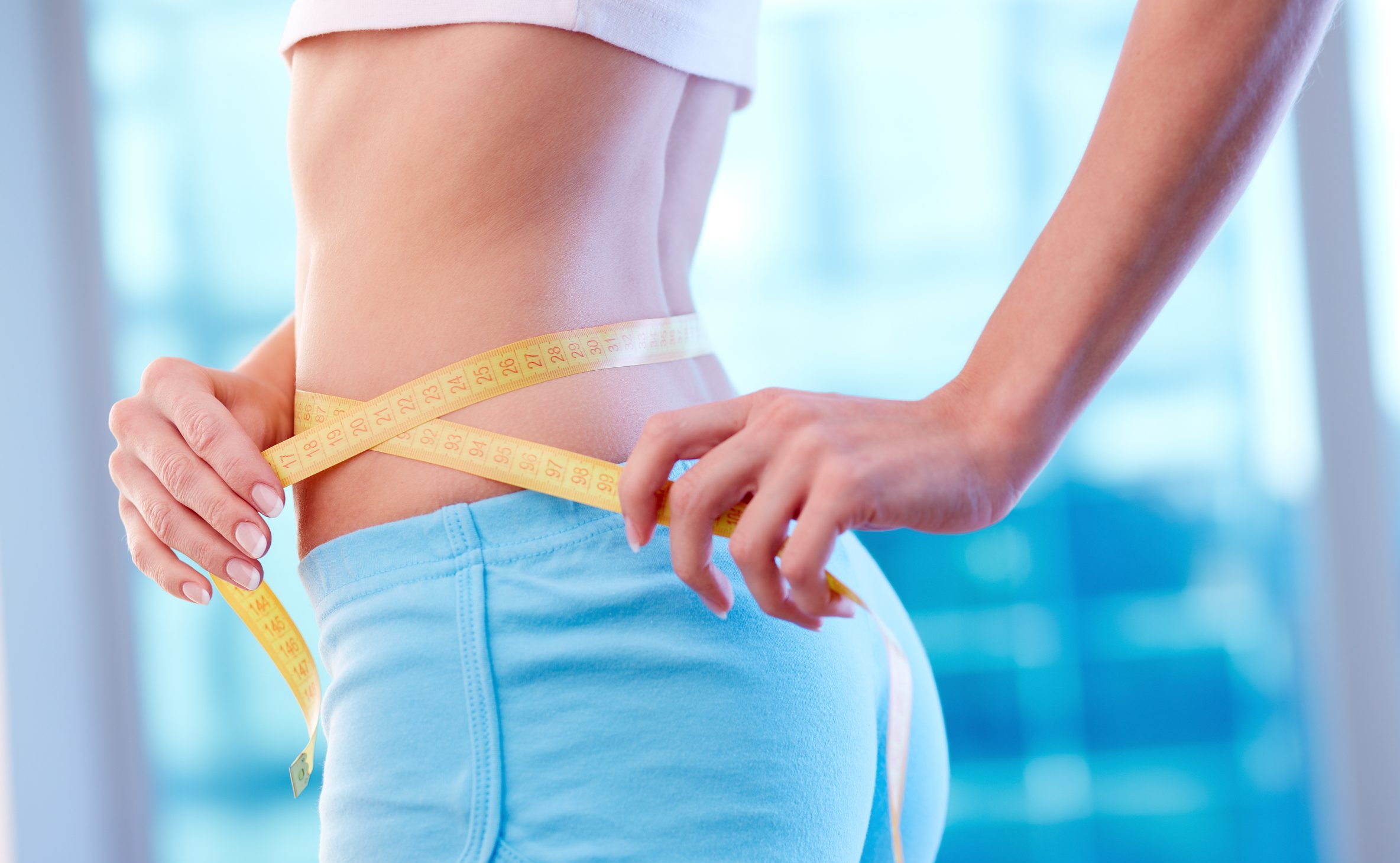Although blue light is seen as ‘environmentally friendly’, the harsh reality is that it wreaks havoc on our circadian rhythm resulting in poor sleep and serious health conditions.
The blue light was never a problem for our ancestors, who relied on the sun as their primary source of light. In the modern world, though, our nights are lit up with blue LED lights, electronic billboards and light emitting from electronic devices like TVs and laptops.
While these devices make our life easier and more convenient, they have been shown to negatively impact our ability to get a good night’s sleep. Moreover, poor sleep can lead to long-term health conditions like diabetes, obesity and heart disease.
What is blue light?
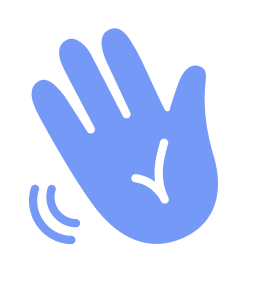
When it comes to light, not all colours have the same effect. Light is made up of ‘electromagnetic radiation’, which is a type of energy invisible to the naked eye. We are able to decipher different colours by the amount of energy they have.
For instance, a rainbow has an entire spectrum of visible light, while white light, such as the sun, blends all colours.
Blue light is part of the visible light spectrum and has been shown to have positive and negative effects on our health. On the one hand, blue light exposure during the day can help to set our body clock; however, exposure late at night can have the opposite effect and disrupt our sleep patterns.
How does blue light affect sleep?

Our body clock is a finely tuned, intricate, and complex system that triggers our bodies to perform essential daily activities like waking up and going to bed. Unfortunately, for many of us, our circadian rhythm is completely out of whack.
Light, particularly blue light plays a critical role in syncing our body clocks. Too much exposure at the wrong times can impact our sleep, while too little during the day can harm our health.
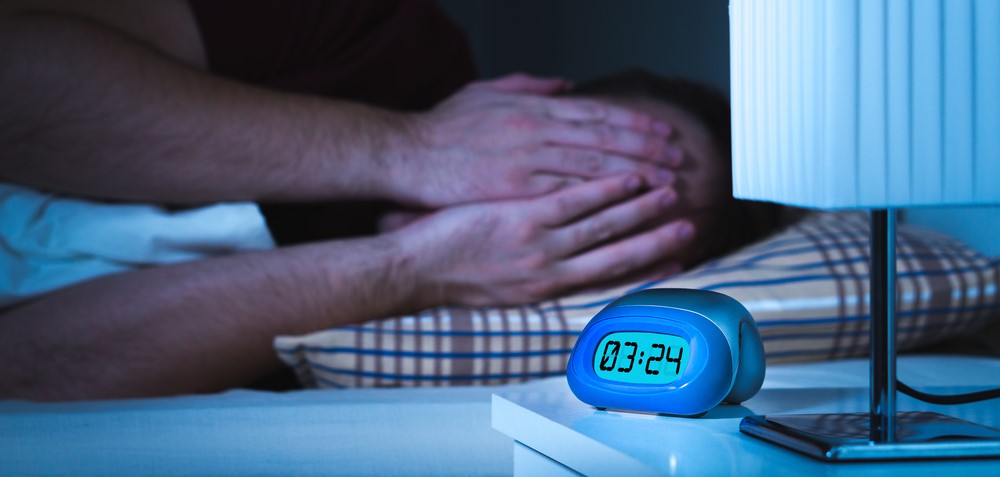
During the day, for instance, exposure to blue light from the sun can improve our focus and help to set our circadian rhythm to ensure a good night’s sleep. As a matter of fact, the timing of blue light exposure can help to treat some circadian rhythm sleep disorders.
However, blue light can also hinder our body’s release of melatonin, which helps us sleep. While this is exactly what we need during the day, it is the last thing we want at night. In short blue light exposure close to bedtime fools our bodies into thinking it is daytime.
Over time, a chronic ‘misaligning’ of our body clock can lead to severe long-term health conditions like depression and certain metabolic disorders.
Electronic devices and blue light
In today’s modern age, most of us are exposed, some might even say, ‘bombarded’ by blue light. But where exactly does this harmful light emanate? Below is a list of just some of the electronic devices that emit blue light.
After reading the list, you can then identify the devices you spend the most time on and work on ways to reduce your exposure to them.
Common electronic devices that emit blue light:
LED lights
TVs
Tablets
Smartphones
Computers
Game consoles
Fluorescent lights
Keep reading below to find out how you can reduce and optimize the amount of blue light you are exposed to on a daily basis.
Five tips to optimize blue light for better sleep

Here are five tips to help you optimize and limit your exposure to blue light. As you’ll see, blue light is needed to set our body clock, but get too late in the day, and it spells disaster for your sleep.
1Get some sun during the day

Starting the day off with some exposure to the sun sets the tone for your circadian clock to get in sync. If you can get outside and exercise, that’s great, but even if you can’t, simply working near a window can be enough to reap the benefits of blue light during the day.
Even on cloudy days, getting outside is still a good idea as you will be exposed to more blue light than you would be staring at your computer all day.
2Limit blue light before bed
This next tip is practical, simple and easy to implement, well, for some people, anyway. One of the best ways to limit your exposure to blue light is by setting a rule of turning off all your electronic devices an hour before bed.
Instead of watching YouTube and Netflix, find a nice quiet area to read a book, solve a puzzle or do some light stretching. These activities not only help you fall asleep, but they strengthen your core, improve your cognitive health and even relieve pain.
3Change the settings on your device
If you are not keen on turning off your smartphone, the next best thing is to change your device’s ‘built-in’ settings. Most, if not all, smartphones, tablets, and computers have a setting designed to filter out harmful blue light.
Whether it’s ‘night mode’ or ‘dark mode’, using these filters can reduce the stress on your eyes, making it easier to relax and subsequently get to sleep. If you sit in front of a computer all day, this small change can positively impact your sleep and health.
4Avoid apps you love before bed
Are you addicted to social media apps like Twitter, Tiktok and Instagram? While there is nothing inherently wrong with these apps, if you find yourself spending too much time on them before bed, they can negatively impact your sleep.
Not all apps are bad, though. For instance, an app that plays white noise and helps you relax is much more beneficial than scrolling through Tiktok or Twitter before bed. There’s no need to cut them out completely; rather, limit them before bed.
5Seek advice from a professional
For some people, no matter what they do, they just can’t seem to get a good night’s sleep. In cases like these, you’re best advised to seek the guidance of a sleep expert because you may be suffering from a sleep disorder.
 Source: National Library of Medicine
Source: National Library of MedicineFor instance, short-term insomnia is the most common sleep disorder, with nearly 30% of people reporting health issues related to insomnia. Common symptoms of insomnia are:
Exhaustion
Difficulty sleeping
Poor concentration
Difficulty focusing
If you are experiencing any of these symptoms and they are affecting your daily life, please seek the advice of a sleep specialist.
Ten interesting facts about blue light
Blue light wavelength is the shortest and scatters easily, which is why the sky is blue.
Compared to the sun, electronic devices emit a minimal amount of blue light.
There are many sources of blue light in households, including TVs and LED lights.
Some research has suggested that ‘photodynamic therapy’ may treat skin cancer.
Research shows blue light may help with the seasonal blues (pun not intended).
Your phone, tablet, and computer have built-in filters to reduce blue light.
The blue light-blocking glasses market is projected to reach $27 million by 2027.
Exposure to blue light before bed can negatively impact your ability to fall asleep.
Close to 100% of blue light rays penetrate the retina compared to 1% of UV rays.
54% of kids sleep with their smartphones, and 75% have a TV in their bedroom.
Let’s sum it up

Blue light is emitted from electronic devices like TVs, smartphones, tablets and desktop computers. LED lights are also a source of blue light. Remember, blue light can negatively impact your circadian rhythm and, subsequently, your sleep.
Be sure to limit your use of electrical devices at least 90 minutes before going to bed. While this may be difficult for some people, the long-term health benefits are well worth it.
Turn your phone off tonight and experience the wonders of stress-free sleep.
Hungry for knowledge? Here is more
If you are interested in learning more about how artificial light affects our mind and sleep, watch this video from Dr. Andrew Huberman, a professor of neurobiology and ophthalmology at Stanford University School of Medicine. In this clip he gives practical advices on how to protect yourself from disturbing your circadian rhythm in the evening and night time.
Receive Exclusive Tips & Weekly Digest – subscribe to our newsletter

